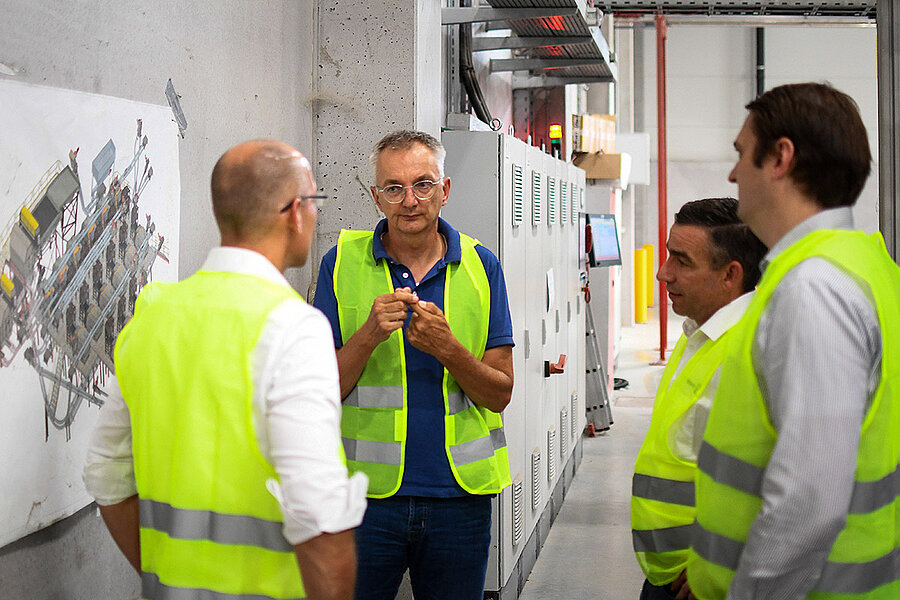In 2017 GRAF received confirmation of funding from the environmental initiative programme offered by the German Federal Ministry for the Environment, Nature Conservation, Nuclear Safety and Consumer Protection. GRAF had demonstrated that sorting material fractions that were previously considered low-value, and usually exploited thermally or recycled as mixed plastics, could work and that these materials could be upgraded to high-quality recycled plastics. The focus here is on black plastics. Conventional optical sorting systems cannot detect these plastics, which thus pose a seemingly unsolvable task for recyclers. But GRAF succeeded at the challenge, and it is proud of that.
STEINERT sorting machines for difficult-to-sort plastics
The sorting process is made possible by STEINERT technology, which not only positively separates black plastics but can also sort them accurately. A total of 16 UniSort sorting machines with hyperspectral imaging (HSI) sensors are in use at the GRAF raw materials competence centre in Herbolzheim, where they generate PP and HDPE fractions in black and light for subsequent regranulation. Key here, along with the UniSort Black, are the UniSort Finealyse and UniSort BlackEye sorting machines, which are optimised for sorting small grain sizes.
Using near-infrared (NIR) sensors and a colour camera, UniSort Finealyse can sort plastic flakes by type and colour. A high-speed belt together with a directed air stream stabilise even the smallest objects for the best possible quality levels with minimal excessive sorting. The UniSort BlackEye is based on the same design. It features a sensor for the middle-infrared (MIR) frequency range. This allows black polyolefins (PO) to be accurately sorted into their constituent parts, such as polyethylene (PE) and polypropylene (PP), but also polystyrene (PS) and acrylonitrile butadiene styrene copolymers (ABS).
The recycling economy - conceived from start to finish
Perfectly matched processes ultimately enable GRAF to provide warranties on its products of up to 30 years. And it doesn't stop there. 'We're particularly proud of our superior products, for which the next loop has already been thought through', since all GRAF products can be subsequently recycled. 'We're experts in the circular economy. It's just as right for water as it is for plastics. Both of these are hugely important issues for the future.'
Recyclers of the world, unite!
Each year 350 million tonnes of new plastics are brought into circulation and pose immense challenges at an international level. To achieve the objectives it has set itself, GRAF is continuing to diversify and to invest in new cooperations. 'Unfortunately, too many sorters still don't know that black plastics can be separated. There's a solution for it!' With STEINERT sorting machines, these plastics fractions can be recovered in post-consumer packaging sorting plants and then recycled in cooperation with GRAF. 'How often can you buy a technology and gain a customer for it at the same time?'





